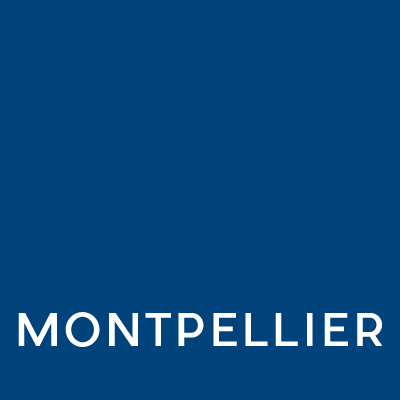We must all adapt and find our place in a new world

It is perfectly obvious to anyone that business leaders are currently navigating uncharted waters as never before. The COVID-19 pandemic has ushered in a period of extreme uncertainty and financial pain to businesses across all industries, both large and small.
As well as managing resultant disruption to professional and personal lives, most business leaders have been faced with having to make a number of difficult decisions to ensure survival, under the pressure of increased scrutiny.
Communications during such a crisis must be handled with extreme care; what is said, who to and how is a critical matter that may mean the difference between a good reputation or a ruined one, or indeed the very viability of a business.
With over a month of lockdown behind us, it is time to shift thinking out of panicked survival mode into metamorphic, transformational, and long-term strategic growth. Anyone who has started a business will know that if you look down, you risk falling off, so head up and look ahead instead!
It is now clear that we will be living through this ‘new normal’ for potentially many months and possibly years to come. Waiting for this crisis to blow over simply is not an option. We must all adapt and find our place in a whole new world.
But how can businesses market themselves in a world so paralysed by uncertainty and stasis? Well the answer lies substantially in the balance between taking a lead – imbuing confidence – and being empathetic and accommodating of customers’ own changed worlds. Finding ways to help customers to help themselves – if necessary, by adapting the service offering or pricing model – and thereby turning adversity into opportunity. If marketing is about fostering the right conditions and environment for sales, then there has never been a more important time to be a marketeer!
Capitalise on the ‘now’: accelerate digital marketing
In one form or another, we will continue to live in a lockdown for some time yet, even if it does begin to taper before eventually restoring to some form of norms. Many of our key stakeholders and audiences, not least customers and potential prospects, are currently sat at home, hungry for engaging, useful content that might help lift their businesses out of this situation. Social media has a part to play.
Users of social media in the UK alone is currently standing at more than 45 million, a figure which has grown daily during lockdown. Indeed, the stock of all digital marketing channels has risen inexorably over the years, including email campaigns and blogging, so the message is, don’t miss out on the opportunity presented by lockdown. When it eventually subsides, many people will no doubt want to take a well-earned break or a pause, and therefore be less attentive for a while, so use the window of opportunity whilst the majority of the UK is online and hungry for content that you can contribute towards improving their lot.
Engage with your audiences for a long-term relationship
This is, possibly, the most important reason to ensure that you are making the right sort and volume of noise right now. It’s about securing your long-term wellbeing and future. No one has escaped the economic damage of the global pandemic, yours and our key stakeholders and customers included. The needs of each may differ: investors may want to be reassured that the business is still thriving; customers may need direct support, and staff and stakeholders will be looking for leadership and inspiration. What is imperative is to communicate with each of these audiences proactively in ways which directly add value to their lives, whether that is reassurance they are valued and have a place in the business going forwards or helping clients to navigate their way through the crisis by engaging effectively with their own stakeholders and prospects.
Research has shown that through the 2007-2009 Great Recession it was the businesses who focused on customer experience who emerged strongest over their competitors.
Demonstrate corporate purpose
Leading through a crisis can be hard but, for business leaders who are willing to step into the public eye, this is an unrivalled opportunity to demonstrate a company’s purpose and values on the widest possible platforms and scale. Never have corporations and businesses – of any size – been the subject of keener eyes from the media and public at large, and here is the opportunity to leverage reputational advantage through proactive media relations that underpin your leadership as both employers and as thought-leaders, pioneers and innovators within your industry and communities.
In parallel, many brands are stepping up in solidarity during the pandemic, seeing it as both a reputational opportunity and as a means of social investment. Look at Pret A Manger, the first coffee chain to commit to giving NHS workers free hot drinks or L’Occitane giving a free 30ml tube of hand cream to NHS workers, as well as sending products to hospitals across the country to help alleviate some of the skin problems associated with handwashing and sanitising.
This is both a great social investment and a smart marketing move to distinguish themselves from industry competitors. The brands who go above and beyond during a national crisis will be remembered and rewarded in the future.
Not all UK businesses can provide a product or service that directly aids progress against COVID-19 or supports key workers, but there are still ways in which most businesses will be able to harness the crisis in ways that are reputationally advantageous.
Boldly go where no competitor has gone before
Warnings of a recession can tempt anyone into cutting budgets and trimming planned spend. What does this mean for potential new business? Wallets will be tighter, potential customers are likely to window-shop more, so it’s not only important to remain visible, but to differentiate from competitors in a meaningful and useful way to secure new business.
The great Albert Einstein is credited with the proverb ‘adversity introduces a man to himself’. The silver lining to a period of crisis such as we face right now is that it often fosters innovation and creativity. Whilst times are good, there is a temptation to stick with ‘what has worked for X number of years’, but hard times are a golden opportunity for unique, creative campaigns, and the possibilities are endless.
Due to the difficulty of complying with social distancing regulations to shoot footage, some corporations, including Facebook and Virgin Media have creatively turned to social media for footage for their video content, while Getty Museum is running a Twitter campaign to encourage the public to recreate works of art at home and engage with the brand. The campaign has gained Getty Museum significant engagement including more than 11,000 ‘retweets’ and over 26,000 ‘likes’.
Revaluate your value proposition
The world is changing rapidly. It may be that service offerings will have to adapt to meet the needs of the ‘new normal’. The key in planning for future customer/client need will be in identifying what those needs will be and how your business is going to meet them.
The hair care and dentistry industries for example are likely to see mass demand for appointments after the lockdown. Marketing firms working with clients in these areas should already be planning how to manage through this surge in such a way that drives the greatest traffic to their clients even if customers might face waiting times on their appointments. As in previous periods of economic shock, decisions made during this crisis will likely shape a corporation’s identity and tell a story that will leave traces long after COVID-19 has subsided as a crisis.
Business leaders must take decisive action now to ensure the stories told about their company post-crisis are positive ones. Post-crisis there may be an even bloodier battle for survival as many businesses, financially hurt by the effects of the pandemic, scramble for new leads – a strong marketing strategy and maintaining a good reputation will undoubtedly play its part in the success of a business over its competitors.

By Guy Woodcock, CEO








